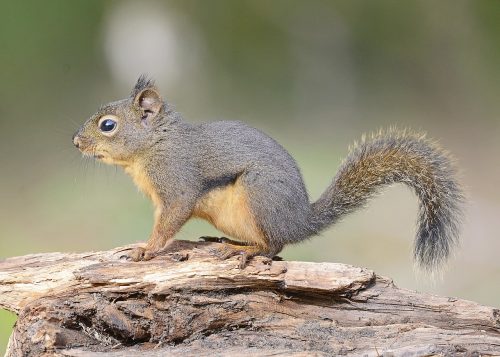Humans are thirsty animals—it’s built into our DNA. But have you ever thought about what happens in your body when you feel an overpowering urge to quench your thirst? Thirst is triggered by a surge in compounds which affect the properties of fluids, like ions. The measure of these so-called osmolytes in the blood is called serum osmolarity. Subsequently, hormones like vasopressin act on the kidneys and blood vessels to prevent additional fluid loss by reducing urine output and increasing the reabsorption of water into the body. You might think the same mechanism is present in all mammals. Yet, Elena Gracheva and her team lab at the Yale School of Medicine were surprised to find that ground squirrels, which hibernate for up to nine months without food or water, have lowered serum osmolality.
Hibernating squirrels go into a state of torpor, where they reduce their breathing rate, heart and metabolic rates, temperature, and excretion. Every few weeks, hibernating squirrels reach a state called interbout arousal (IBA), an active-like state in which they return to their regular body temperature. Researchers Ni Feng and Madeleine Junkins found that unlike squirrels during torpor, those in IBA reverse their serum osmolality back to normal, suggesting there is an internal mechanism reversing osmolality without the influence of water. Moreover, when squirrels in IBA are presented with water, they exhibit suppressed thirst, despite being physiologically similar to active squirrels.
One of the possible applications of Gracheva’s research lies in NASA space travel. “If we can put astronauts in [a hibernation-like state], they will need fewer resources, and we can shorten space travel due to lightened weight,” Gracheva said. Additionally, Ni explained that “therapies that make one stay hydrated, despite not having water” are an exciting possibility for people affected with fluid imbalance. This research also holds promise for the organ shortage; modifying organs so they are more robust in cold conditions could possibly increase the organ supply.

